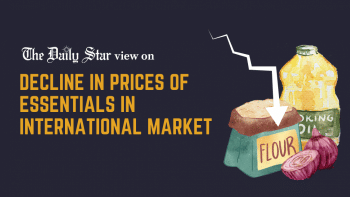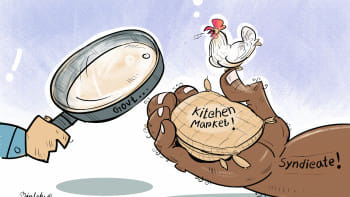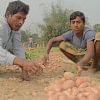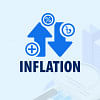Here we go again!

Whatever little hope we had of a respite from inflation in the coming days seems to have disappeared once again, with a fresh hike in prices of essential items. Earlier this month, BBS data suggested that food inflation had declined by 28 basis points in rural areas, and 4 basis points in urban areas in April, leading to an overall decline – though slight – in the rate of inflation. Over the past week, however, the price of one-litre bottled soybean oil increased by Tk 12, while the price of loose soybean oil increased by Tk 9 a litre. A kg of loose sugar has increased by Tk 10, while prices of potatoes and onions have gone up by Tk 5 a kg. The retail price of eggs – a vital source of protein for people who have already cut down on consumption of chicken and fish – also rose by Tk 10 a dozen.
Spiralling costs have already paralysed many households, with even the most basic necessities becoming increasingly unaffordable. As prices continue to soar, an overwhelming majority of people are being forced to make difficult choices between paying bills, putting food on the table, and meeting other essential expenses. With a new round of price hikes of essential items, how are households – who have already cut down on their consumption significantly to make ends meet – going to survive, with no corresponding increase in their disposable incomes?
We are disappointed at the lacklustre efforts of the government to curb inflationary pressure, and to make affordable food accessible to all, despite assurances of adequate food supply. While we understand that the supply chain disruptions brought about by the Russia-Ukraine war has hugely impacted the economy and food imports in a way the government could not have predicted, the fact remains that it has not done nearly enough since then to check collusion and corruption within its supply chains and to address the governance failures that are pushing prices ever upwards. As a result, though prices of many essential items, including sugar, oil and flour, have remained stable or fallen in the global market, the fates of Bangladeshi consumers have not changed for the better.
Meanwhile, dishonest businessmen, aided and abetted by dishonest policymakers and bureaucrats, are making a mockery out of people's miseries, taking advantage of the global cost of living crisis to artificially hike prices in the domestic market. Take, for instance, the price of soybean oil, which has decreased significantly in the global market (by 29 percent in March this year). But when the government withdrew the VAT exemption privileges in light of the price drop, businessmen hiked up prices again, using it as an excuse to earn extra profits. It's high time the government seriously addressed the issue of greedflation. It should be obvious to them that conducting drives and fining some traders from time to time cannot make up for the failure of regulatory oversight.
Given that the Ukraine-Russia war is likely to cause fluctuations in supply in the near future, the government must also find alternatives to and/or reduce its import dependence for essential commodities. But none of this can happen unless our policymakers come down from their ivory towers to the level of the ordinary people, living form hand to mouth, to fully understand the urgency of the crisis and react to it accordingly.


 For all latest news, follow The Daily Star's Google News channel.
For all latest news, follow The Daily Star's Google News channel. 









Comments